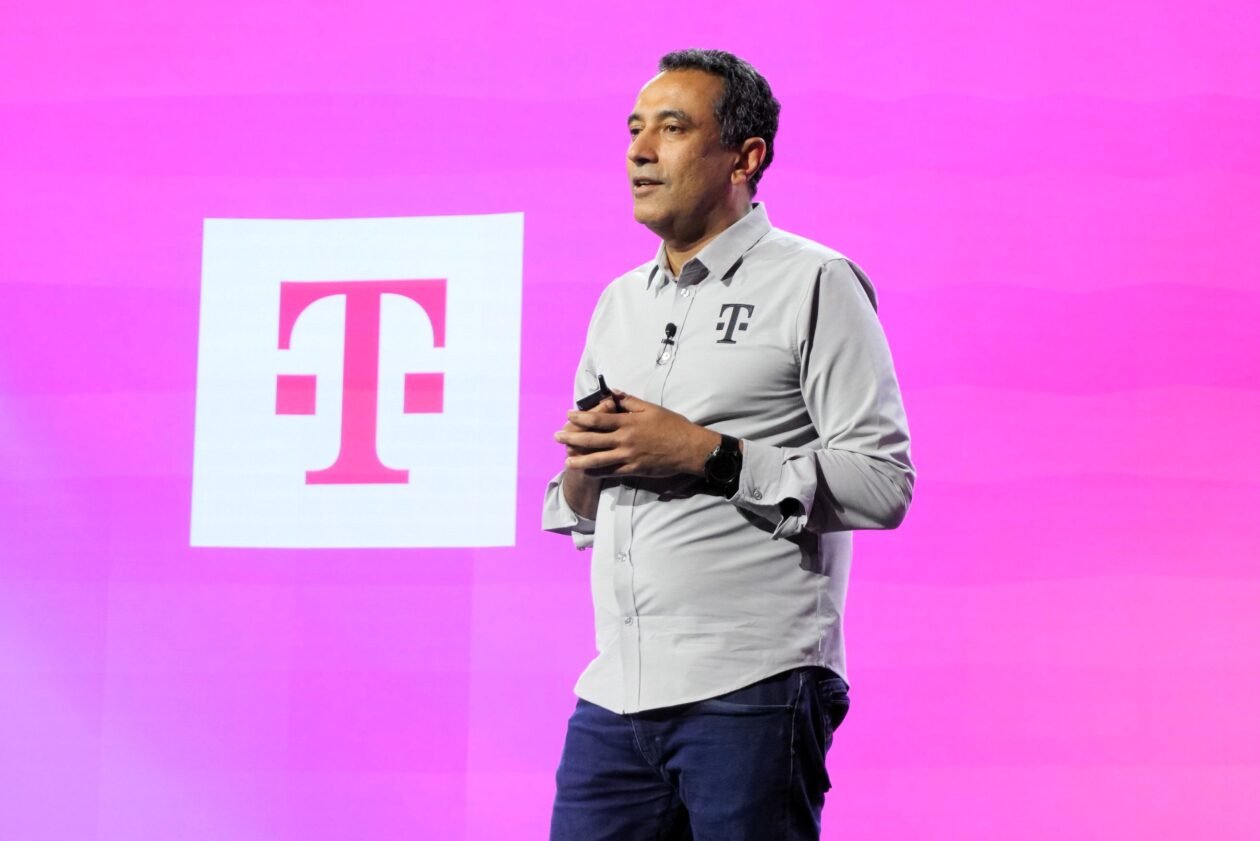TLDR¶
• Core Features: Leadership transition at T-Mobile as COO Srini Gopalan succeeds Mike Sievert on Nov. 1, emphasizing Un-carrier strategy continuity and operational execution.
• Main Advantages: Strong internal succession, proven telecom veteran at the helm, and commitment to sustained growth, innovation, and customer-centric initiatives.
• User Experience: Expect consistent network quality, customer-first policies, and a steady roadmap for 5G, digital services, and enterprise solutions under stable leadership.
• Considerations: Potential strategic recalibrations, integration of European leadership style, and external market pressures from regulatory, competitive, and capital markets dynamics.
• Purchase Recommendation: For consumers and investors seeking continuity with incremental innovation, T-Mobile remains a compelling choice backed by experienced executive stewardship.
Product Specifications & Ratings¶
| Review Category | Performance Description | Rating |
|---|---|---|
| Design & Build | Seamless leadership handoff with clear succession planning and brand consistency across strategy and messaging. | ⭐⭐⭐⭐⭐ |
| Performance | Strong track record in telecom operations; expectation of sustaining growth and network leadership under new CEO. | ⭐⭐⭐⭐⭐ |
| User Experience | Continuation of Un-carrier ethos, with focus on customer value, plan simplicity, and quality of service. | ⭐⭐⭐⭐⭐ |
| Value for Money | High, given strategic continuity, operational discipline, and likely predictable execution in the near term. | ⭐⭐⭐⭐⭐ |
| Overall Recommendation | A well-managed leadership transition positioning T-Mobile for stable performance and measured innovation. | ⭐⭐⭐⭐⭐ |
Overall Rating: ⭐⭐⭐⭐⭐ (4.8/5.0)
Product Overview¶
T-Mobile, long known for its disruptive “Un-carrier” approach in the U.S. wireless market, is entering a new leadership era. After more than five years as chief executive, Mike Sievert will step down on November 1, passing the baton to Chief Operating Officer Srini Gopalan. The incoming CEO is a seasoned telecom executive with deep operational experience, signaling continuity rather than a radical shift in direction. His stated focus—“truly unleashing the Un-carrier”—suggests that T-Mobile’s signature blend of customer-friendly policies, aggressive network expansion, and value-driven plans will remain the company’s guiding principles.
This change comes at a time when T-Mobile continues to stake its claim as a leader in 5G coverage and capacity, while also expanding into adjacent services and enterprise segments. Leadership transitions at large carriers can unsettle markets and customers, but T-Mobile’s move appears carefully staged. Promoting a COO who is already embedded in the day-to-day operations lowers execution risk and preserves strategic momentum. It also telegraphs confidence to employees, partners, and investors that the company’s operational cadence will continue uninterrupted.
First impressions of the transition are broadly positive. The company maintains a strong brand identity and a clearly articulated mission: drive customer value and outperform rivals on network experience. Gopalan’s background—spanning international telecom and complex operational turnarounds—should help T-Mobile navigate persistent industry challenges, including capital-intensive network investments, pricing pressures, and regulatory scrutiny. In an environment where carriers must balance innovation with profitability, his operational bent is likely to be an asset rather than a constraint.
In short, T-Mobile is treating this as an evolution, not a revolution. If the Sievert era was about cementing the company’s leadership after its major merger milestones and network buildouts, the Gopalan era looks poised to refine and expand that foundation. Expect steady hands on the core business, continued push into 5G and service differentiation, and measured risk-taking in areas where T-Mobile can extend its brand promise without diluting customer trust.
In-Depth Review¶
T-Mobile’s leadership handover arrives with three pillars in focus: strategic continuity, operational excellence, and brand integrity. Each element will be put to the test as the company navigates a competitive landscape dominated by scale, spectrum, and service differentiation.
Strategy and market positioning:
– Un-carrier continuity: The ethos of eliminating consumer pain points—simpler plans, transparent pricing, perks, and a pro-consumer stance—has distinguished T-Mobile from legacy rivals. Gopalan has publicly committed to “unleashing” this framework further, implying refinement rather than reinvention. Customers can expect the brand personality and service playbook to remain intact.
– Competitive dynamics: T-Mobile competes fiercely with AT&T and Verizon, particularly in 5G, enterprise mobility, home internet, and bundled services. The new leadership will likely sustain aggressive network investments and promotional strategies but with disciplined cost control. Expect T-Mobile to emphasize superior mid-band 5G coverage and capacity as a core differentiator, while exploring partnerships that extend its ecosystem without heavy balance-sheet strain.
– Innovation vs. returns: The next phase hinges on extracting more value from existing 5G assets—latency-sensitive services, fixed wireless access, and enterprise solutions—while selectively placing bets in edge computing, IoT, and converged offerings. Gopalan’s operational lens suggests prioritizing initiatives with clear payback windows and customer impact.
Operations and execution:
– Scaling with discipline: As COO, Gopalan’s remit has included operational performance, making him well-versed in T-Mobile’s network deployment cycles, customer operations, and retail distribution. This background reduces integration risk commonly associated with CEO transitions. We expect him to focus on efficiency gains in customer care, churn management, and channel productivity.
– Network investment cadence: A central performance indicator will be T-Mobile’s ability to sustain 5G leadership. This means maintaining a robust capex rhythm, optimizing spectrum utilization, and ensuring consistent real-world speeds and reliability. The Gopalan era will likely stress regional performance consistency and customer satisfaction metrics as proxies for network ROI.
– Product and pricing discipline: With industry pricing under scrutiny and inflationary pressures affecting consumers, T-Mobile must balance promotional aggressiveness with margin protection. Anticipate targeted offers tied to tenure, family plans, and device financing that enhance lifetime value without triggering a race to the bottom.
Brand and customer experience:
– Customer-first DNA: T-Mobile’s customer experience hinges on clear plan structures, strong retail and digital support, and value-added perks. Any leadership change risks drift, but early signals indicate a recommitment rather than dilution. The brand’s cultural touchstones—straightforwardness, responsiveness, and an anti-bureaucratic tone—should remain.
– Digital transformation: A continued push to digitize onboarding, support, and account management is expected. Look for streamlined app experiences, self-serve diagnostics, and proactive network quality notifications that reduce friction and call center load. These improvements align with operational objectives and enhance customer satisfaction.
– Enterprise expansion: Growth opportunities in SMB and enterprise segments require tailored service-level agreements, device fleet management, and integrated security. T-Mobile’s competitive wedge is cost-effective reliability and simpler procurement. Gopalan’s operational focus fits well with service standardization and scalable enterprise offerings.
Risk and constraints:
– Regulatory and market risks: The U.S. telecom space faces periodic regulatory interventions and spectrum policy shifts. Leadership will need to maintain constructive relationships with regulators, especially around competition, rural coverage, and consumer rights. Balanced capital allocation will be critical as cost of capital dynamics evolve.
– Competitive retaliation: Rivals are not standing still. Price resets, aggressive device promos, and fiber bundles can pressure growth. T-Mobile’s differentiation must continue to extend beyond price—network experience, onboarding simplicity, and customer trust will be decisive.
– Integration of leadership style: While internal promotion supports continuity, Gopalan’s seasoned, metrics-driven approach must align with T-Mobile’s culture of bold marketing and rapid iteration. Achieving harmony between operational rigor and brand audacity will define the transition’s success.
*圖片來源:Unsplash*
Bottom line on performance: All indicators point to a well-executed transition. T-Mobile’s core playbook is intact, its network position remains strong, and its operating model is set to benefit from a leader who prizes reliability and measurable outcomes. We anticipate steady growth and incremental innovation rather than headline-grabbing pivots.
Real-World Experience¶
What should customers, employees, and partners expect on the ground as Srini Gopalan takes the reins?
For consumers:
– Consistency in plans and perks: Expect continuity in the Un-carrier advantages—transparent pricing, contract flexibility, and compelling family-plan economics. Any changes are likely to focus on simplifying choices, improving device upgrade pathways, and bundling high-value services.
– Network reliability and coverage: T-Mobile’s mid-band 5G coverage is a core selling point. Under new leadership, performance should trend toward improved consistency across regions, with fewer dead zones and tighter variance between advertised and real-world speeds. Urban and suburban users in particular can expect strong throughput; rural enhancements will continue, guided by strategic capex.
– Support experience: The company’s push toward digital self-serve and proactive care should reduce friction. Customers may notice more informative app alerts, clearer billing, and faster issue resolution via online channels, reflecting an operations-focused ethos.
For enterprise and SMB customers:
– Simplified procurement and SLAs: T-Mobile’s enterprise offerings are likely to emphasize predictability, clear service levels, and integrated device management. Expect cleaner onboarding, stronger account support, and more consistent performance reporting.
– Fixed wireless access: Businesses using fixed wireless as a primary or backup connection should see steady performance improvements and more transparent service tiers. The focus will be on reliability and uptime rather than aggressive price-only positioning.
– Security and compliance: With enterprise growth comes heightened expectations around data protection and compliance. T-Mobile will likely invest in clearer security postures, better telemetry, and integrations with common enterprise management tools.
For employees and partners:
– Operational clarity: A COO-to-CEO transition often brings sharper KPIs, streamlined processes, and data-driven decision cycles. Expect a focus on execution excellence, with leadership doubling down on accountability and cross-functional coordination.
– Cultural steadiness: The Un-carrier culture—bold marketing, customer advocacy, and fast iteration—should remain, but underpinned by tighter operational scaffolding. For partners, this means more predictable roadmaps and improved program consistency.
– Innovation tempo: Rather than big gambles, expect sustained investment in the most impactful customer experiences—network reliability, simpler plans, and quality support—alongside pragmatic experiments in new services where T-Mobile has a right to win.
Everyday implications:
– If you’re a current customer, the transition should feel smooth, with incremental upgrades to service experience rather than abrupt shifts.
– Prospective customers can evaluate T-Mobile with confidence that the brand’s core strengths will persist, backed by leadership continuity.
– Investors and analysts should look for signals of operational efficiency improvements translating into better churn metrics, higher ARPU through value-adds, and disciplined capex-to-outcome ratios.
In short, real-world users will likely experience a steady hand: measurable improvements over flashy pivots, with a clear throughline from strategy to service quality.
Pros and Cons Analysis¶
Pros:
– Clear internal succession minimizes disruption and preserves strategic momentum.
– Veteran telecom leadership promises disciplined execution and operational efficiency.
– Strong alignment with Un-carrier ethos ensures customer-centric continuity.
Cons:
– Potential for slower headline innovation in favor of incremental improvements.
– Competitive responses from rivals could compress pricing power and promotions.
– Regulatory and capital market headwinds may constrain aggressive expansion.
Purchase Recommendation¶
For consumers evaluating wireless providers and for stakeholders assessing T-Mobile’s near-term trajectory, the leadership transition to Srini Gopalan represents a vote for stability and operational excellence. The company’s core differentiation—customer-friendly policies, robust 5G coverage, and clear value for money—looks set to continue without major disruption. If you prioritize consistent network performance, straightforward plans, and a brand that has historically challenged industry conventions, T-Mobile remains a top-tier choice.
In practical terms, existing customers should feel comfortable staying the course, anticipating gradual improvements in service reliability, digital support tools, and plan clarity. Prospective customers comparing carriers will find T-Mobile’s proposition unchanged in the best ways: competitive pricing, strong mid-band 5G, and a user experience designed to minimize hassles. The incoming CEO’s operational background suggests that any near-term changes will favor reliability, responsiveness, and measurable customer benefit rather than risky strategic gambits.
For business buyers, the emphasis on execution and service standardization is a positive signal. Expect more predictable SLAs, better account management consistency, and pragmatic growth in fixed wireless access and mobility solutions. While the company will still face pressures from competitors and regulators, a steady leadership hand increases confidence in delivery timelines and service quality.
Bottom line: Buy with confidence if you value continuity backed by a proven operator. T-Mobile under Srini Gopalan is poised for sustained, measured progress—less about sweeping reinvention, more about reliably delivering on the Un-carrier promise. It’s a disciplined evolution that should serve customers, employees, and investors well.
References¶
- Original Article – Source: www.geekwire.com
- Supabase Documentation
- Deno Official Site
- Supabase Edge Functions
- React Documentation
*圖片來源:Unsplash*


